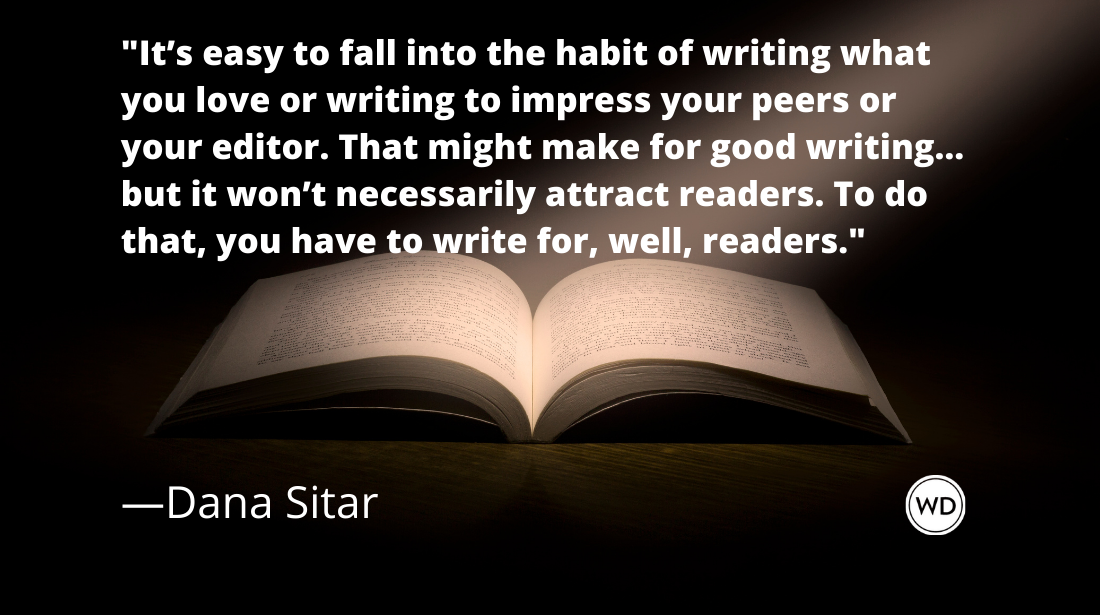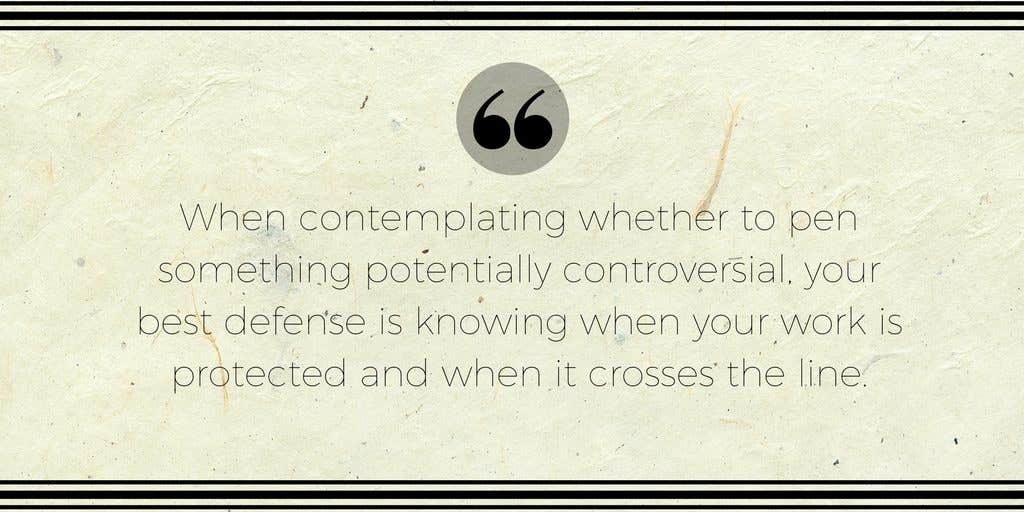Get Connected
Publishing has its ups and downs, but writers can find stasis in online communities. Read about three groups that provide more than just a place to commiserate about editors.
Margaret Atwood, when asked about the topic of her latest work-in-progress during an interview for this magazine, replied, "I'm not telling. Never, ever tell." While I wouldn't second-guess Ms. Atwood, the remark struck me as unusual because, less than an hour before reading her advice, I'd told at least 100 people about my can't-miss article idea. And I hadn't even found a publication interested in it yet.
My audience is an online writing community—a virtual salon. We meet on the Internet when we want professional feedback, need editorial contacts or just feel like road-testing our ideas. (And sometimes we ruminate on why we chose this profession in the first place.)
It may sound like I was giving away the store by telling them about my article After all, these writers, most of whom I've never met, needed their own stellar ideas to sell—and we all know it's competitive out there. But I never felt uneasy about disclosing my idea. These people were there to help, not steal.
In my case, I was able to find what I was looking for (the e-mail address of a receptive editor) and sell my article. Since more of these online communities are springing up all over the Internet, covering nearly every type of writing, there's bound to be one for you. HERE ARE three sites that have created thriving communities worth checking out. (And see our article "101 Best Web Sites for Writers" in the May 2005 issue of Writer's Digest or online at www.writersdigest.com.)
Intro to journalism
David Hochman, who's written for The New York Times, Esquire, Playboy, Outside, Men's Journal, Travel + Leisure and TV Guide, created UPOD (groups.yahoo.com/group/upod), a Web group for working journalists. Hochman formed the group in 2003 after teaching writing classes and realizing there was a better way to disseminate information. UPOD stands for "under promise, over deliver," Hochman's freelancer motto.
"I started the UPOD because I had really good mentors early on, especially at journalism school and at some prestigious publications," Hochman says. "Because writing is a trade, you can learn these tricks about making your way through this business. And the more people involved, the more you'll learn."
When Hochman launched his group, it began as a one-sided conversation. He urged members to ask questions, offered suggestions to new writers and generally got the ball rolling. After some tentative postings by members who were mostly looking for editorial contacts, the ball did, in fact, roll. Word of the site spread, more people began requesting membership (UPOD is invitation-only) and discussions evolved into more constructive banter. Soon there were online conferences about issues facing journalists, such as whether new writers should work for free to launch their careers. A technical discussion even surfaced over the best recording device to use for phone interviews.
Today, UPOD has more than 140 members. "I don't think it can ever get too big for its own good," Hochman says. "The bigger it gets, the better and more valuable a brain trust it becomes."
Hochman says finding editorial contacts is still the most common request, but that doesn't begin to cover the variety of content on the site. "If you need to find an expert on carpets in Iran, get in touch with Arnold Schwarzenegger's publicist or figure out what to wear to interview a Mensa genius—just throw it out to the group and you'll get sound advice. Chances are, somebody has the answers."
Ken Miller, a former senior editor of People, agrees with Hochman's group theory. When he posted his idea for a story that he wanted to pitch to the Los Angeles Times, various UPOD members not only supplied Miller with a contact but also offered guidance on how to approach that editor.
"Their advice kept me from freaking out when I hadn't heard from him in several weeks and encouraged me to follow up aggressively. I wound up with a cover story—my first major assignment after going freelance," Miller says.
The trust issue—actually divulging your ideas to a crowd—can sometimes lead to hesitation from newer members. Established participants, however, understand that it's not only unethical to filch ideas but also completely unnecessary.
"I've never been the slightest bit leery of sharing ideas or information," says Kate Feld of Manchester, England. "With freelance gigs, you're in competition with other writers only in the most abstract sense. It's wonderful for us solitary creatures to be able to help one another out when we can. A few months after joining, I became editor of eightytwenty, a new culture and listings magazine in Manchester, and I've helped UPOD members find contacts at some of my old workplaces."
Screenwriting 101
Wordplay (www.wordplayer.com) is a Web site for both hopeful and established screenwriters, and you don't have to live in Hollywood to get in. It was launched by Ted Elliot and Terry Rossio, co-writers who've racked up an impressive number of screenwriting credits, including Pirates of the Caribbean, Little Monsters, Aladdin, Godzilla and Shrek.
A blockbuster course on movie writing, Wordplay contains dozens of essays on the nuts and bolts of Hollywood business, including when to look for an agent and how to write treatments. There are even copies of Elliot's and Rossio's original scripts, and, everywhere you click, there's an imperative to answer the most fundamental question: What's the screenplay about?
Two guys who've paid their dues, Elliot and Rossio don't pull any punches when it comes to discussing Hollywood. "Our site tends to be a sort of Rorschach test," Rossio says. "Some people are inspired, while others go running."
Those who stick around eventually head to the Forums section, where they can jump into daily discussions about movies. But serious writers are often found in the Scripts room. Here, cyber conversations ensue among those working in the Tinseltown trenches who are trying to figure out contracts (or trying to get one in the first place), contemplating whether to attend pitch seminars and figuring out adaptation rights. Constant deliberations take place involving storyline issues, the most useful conventions for a heist film and creating a title for a work.
Even with Elliot's and Rossio's busy careers, they still find time to field questions, dole out advice and hammer home the points they envisioned addressing in the first place.
Rossio says that the most recurring issue deals with writers looking to others—agents, producers, studio people—to set a standard. "We promote the opposite idea. It's the writer who must become the expert and set the standard," Rossio says. "The writer has to take responsibility for making a career and not look to someone else for validation. Writers who ask, 'Please read my script and tell me if it's good' have exactly the wrong approach."
Wesley Heidenreich, of Austin, Texas, frequently posts on Wordplay and is constantly gathering information for his projects. "The very first article I read [on Wordplay] opened my eyes to having a high concept built into the story," he says. "My original movie idea was something that maybe could develop into a good drama, but after reading that article, I realized it would be better to spend my time on a more worthwhile idea."
Still awaiting his first sale, Heidenreich says participating in the virtual round table discussions keeps him motivated and helps him gain valuable insight into the entire process. "I try to understand the context behind the words. And yes, I was a bit nervous about offering my opinions in a forum of paid writers, but I try to be quick to listen, slow to answer and willing to adjust my views."
Rossio says that not every bit of advice he reads in the forums is accurate. But the experts usually come to the rescue, straightening out any mistakes. "The cumulative information of all the responses on the message boards is usually dead-on," Rossi o says. "If someone is promoting advice that seems completely off-base, there are a lot of professionals who'll step in, including myself."
Certainly that's one reason for Wordplay's popularity. "People will write us after they option a screenplay, sell a pitch or win a competition and say they couldn't have done it without our site," he says.
Of prose, poetry and posting
Not every online community can be designed and operated by and for professionals at the top of their games. The majority of these sites are created simply to give green writers space to express themselves or to test the waters and see if they have the chops to take their work to the next level. While The Creative Pen (groups.yahoo.com/group/thecreativepen) isn't visited by Pulitzer Prize winners or moderated by Nobel recipients, its members remain serious about writing.
Proving that it's indeed a worldwide Web, The Creative Pen's moderator is Philippines resident Dwane Arboleda. A published poet, Arboleda is currently writing short stories with hopes of someday publishing them. He prefers not to be a heavy presence at the site.
"I think [The Creative Pen] has evolved as it should. Writers are sharing their works, offering opinions for others, promoting their publications and helping out with publication-related queries," Arboleda says. "I'm inclined to let the group decide where they want to take it, to make them feel it's their group, not mine."
While the site is open to anyone, most of its visitors are fiction and poetry writers. Once a work is posted, feedback and critiques from other members follow, sometimes on the site and sometimes through personal e-mail communication.
"I believe communities that encourage the sharing of ideas and resources are the only way for the craft to evolve," Arboleda says. "If information is known only to a privileged few, writing as an art will stagnate. This way, being upfront with your ideas and knowledge encourages creative thinking."
Alicia Arnold of Kent, Ohio, joined The Creative Pen because she's always writing and thinking of new plots, characters and scenes. In less than a year after becoming a member, she's completed one historical romance and is working on another.
"I've never been nervous about sharing my ideas and stories," Arnold says. "Having your work critiqued by an impartial third party is a great help to one's career. I also believe that not accepting criticism is a sure way to shoot yourself in the foot before you even get it in the door."
In fact, sites like The Creative Pen might just be the way to get a foot in the door. Writing communities are sometimes frequented by people like Sherri Szeman, author of The Kommandant's Mistress, which was chosen as one of The New York Times Book Review's 100 Notable Books of the Year. Szeman is now the publisher and executive editor of RockWay Press in Donnelsville, Ohio. She uses The Creative Pen to post the company's creative writing contests and other welcome information for writers.
Szeman says that new writers looking to make a living from their work should seek groups with published authors-from legitimate trade houses to university or literary presses. "Those authors are able to give reliable information about the craft and the business, both of which a new writer needs to survive. Groups with members who are authors, editors, agents and publishers are ideal," she says. Adds Arboleda: "Writing communities help you hone your craft and learn from the experiences of others." And in this business, we'll take as much of that as we can get.









